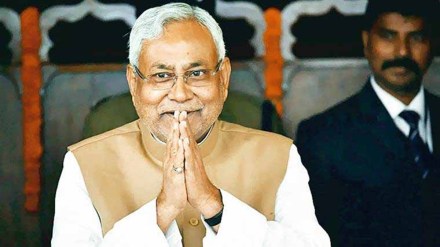Bihar Chief Minister Nitish Kumar will chair a meeting of Opposition parties in Patna on June 12. The meeting, part of Kumar’s efforts to bring together all Opposition parties under one roof to put up a formidable fight against the Bharatiya Janata Party, will see the presence of several prominent leaders, including chief ministers.
Among leaders who are likely to attend the meeting are West Bengal Chief Minister Mamata Banerjee, Nationalist Congress Party president Sharad Pawar, Jharkhand Chief Minister Hemant Soren and Shiv Sena (UBT) chief Uddhav Thackeray, among others.
Also Read: Ajay Maken EXCLUSIVE: ‘Kejriwal wants control over Vigilance to stall probe against AAP govt’
The Congress, which was the first to initiate talks with Nitish Kumar, may have a representation at the meeting, although it is not immediately clear if party president Mallikarjun Kharge or former MP Rahul Gandhi will attend.
The AAP, with whom the Congress hardly sees eye to eye, is also among the invitees to the event with Delhi Chief Minister Arvind Kejriwal likely to attend the meeting. Tamil Nadu Chief Minister MK Stalin said he would be unable to attend the meeting due to an official engagement but his party will be represented at the meeting.
Also Read: Tainted Netas: Data shows alarming rise in candidates with criminal cases contesting elections
A total of 20 Opposition parties had come together in protest against the government on the issue of boycotting the inauguration of the new parliament building by Prime Minister Narendra Modi. Opposition parties have united in the past as well on issues like Adani and Rahul Gandhi’s disqualification, among others.
While Opposition parties have joined hands on issues, this will be the first time they will come together to discuss the way forward for the Lok Sabha elections in 2024. With many of these parties among those who do not share a good rapport with the Congress, it has been left to Nitish to reach out to parties and invite them on a common platform.
There currently exist several issues and contradictions within the Opposition that remain unresolved. For instance, Mamata Banerjee, who mooted the idea of Nitish organising a meeting of Opposition parties in Patna, is under attack from the Congress after its lone MLA in West Bengal joined the TMC.
Similarly, the AAP faces stiff resistance from several state units of the Congress party over the support Arvind Kejriwal seeks in its fight against the Centre’s ordinance that virtually negates the Supreme Court order granting the elected government control over services.
The Congress may find itself on a sticky wicket if it chooses to be seen sharing the stage with these parties on one hand, and then oppose them on the other.
